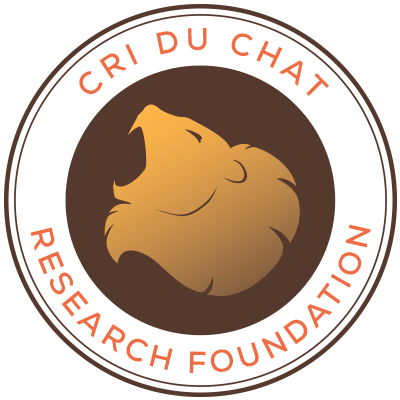Application Process
We are accepting proposals on an ongoing basis. Please submit a letter of intent briefly describing your proposal. Our reply will either invite or decline a full application.
Letter of Intent (LOI) Requirements
All applicants must submit a one-page maximum LOI to CDCRF. Only select applicants will subsequently submit a full proposal. The LOI should consist of the following components:
1. Title: A succinct descriptive title of the project
2. Applicant/PI Information: Name, title, position, institution, mailing address, email address and telephone number
3. Date: Year, Month and date of the letter
4. Mechanism of Support: The type of grant from which the applicant is applying
5. Brief Project Description: This should include a description of the scientific aims for the project, how the project will advance the goals of CDCRF, and a brief description of how the research will be accomplished.
Please submit an LOI by email as a PDF file to info@criduchatresearch.org
After review, a team member will reply via email.
Full proposals will only be reviewed when invited, after successful review of an LOI (above).
If invited to submit a full proposal, please refer to the following:
Full Application Requirements
1. Title Page: Provide the proposal title, PI information and date of submission
2. Lay Summary: Provide a lay summary of the project
3. Abstract: Provide a scientific summary of the project
4. Proposal: NIH format is acceptable but not required
5. Budget: Provide a detailed budget and justification, including current sources of funding
6. Schedule: Provide an estimated timeline, including key milestones
7. Biosketch: For each PI
8. Letters of support or collaboration: As relevant
9. IRB/IACUC approvals: As relevant
Review mechanism
Full applications undergo rigorous peer review by CDCRF science team, select members of our Scientific and Advisory Boards, and additional experts in the field as needed. Proposals are evaluated on potentional impact and value to CDCRF’s mmission, feasibility, innovation, and overall fit into accelerating disease-modifying treatments for CDCRF that are effective, safe, and available to families. CDCRF’s science team will make recommendation to CDCRF Board of Trustees, which will vote to approve or reject funding of the grant. Decisions are sent by email from the CDCRF Science team. The entire process may take 2-3 months, depending on a variety of factors. Depending on peer review and CDCRF program priorities, we may ask to work with applicants to modify the submitted work plan and/or budget prior to award execution.
Thank you for your interest in advancing 5p- syndrome research and helping patients around the world.
Cri du Chat Research Foundation Grants Program- info@criduchatresearch.org
